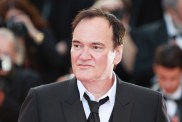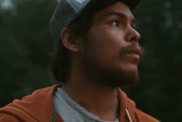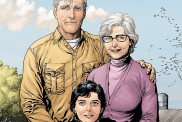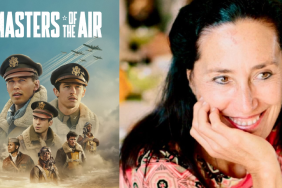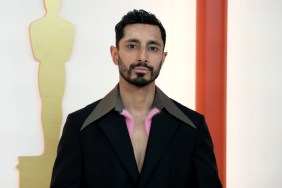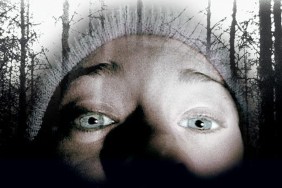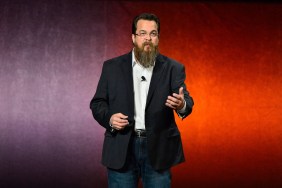Ahead of the moving dramedy’s world premiere at the 2021 South by Southwest Film Festival (SXSW), ComingSoon.net got the opportunity to chat with co-writers and co-stars Mallory Everton and Whitney Call to discuss their heartwarming road trip Recovery!
RELATED: SXSW 2021 Reviews: Jakob’s Wife, Language Lessons & More!
ComingSoon.net: So Recovery is an absolute blast in the film. I gotta be honest going into it, I was a little worried because I feel like stories about COVID are already becoming sort of an oversaturated genre, but yours really stood out. So how did the concept really come to both of your minds for this?
Whitney Call: I mean, it was not originally going to be really about COVID. I think we were just trying to come up with something that we could do logistically, I mean you know what March 2020 felt like, and I think we’re going crazy a little bit. So eventually, we just started tossing around ideas that we’ve been working on, I had a road trip series that I had been kind of mulling on and sending Mal some scripts for that was about two sisters who went on a cross country road trip to dispose of a body. So Mal was like, “Hey, is there a way we can actually make some version of this right now, when we’re all still kind of hunkered down, when we don’t have many resources when we don’t have much funding? Like, could we just make something ourselves and get that first feature out of the way and just figure out actually how to make a movie?” So when we started tossing around road trip ideas, because in our minds road trip made it simpler, I don’t think we realized how many COVID movies were gonna be coming out that just took place over Zoom. But for us, our version of upscaling was keeping it in the car, so when we came up with the idea of actually incorporating COVID and making it more of a rescue movie, it just like ended up rolling out and it kind of wrote itself and turned into a beast that we were just trying to catch up with.
Mallory Everton: Yeah, I mean, honestly, we were really spooked about the exact thing you’re talking about, one having no context on the time period, we were like, “Should we really write about COVID during COVID? We don’t even know what’s gonna stick. Are we gonna make jokes that are super tired? Are we gonna make are we gonna make comments that people don’t even remember?” Like, “Will people remember that you lose your taste and smell when you get COVID, or by then will we have fixed that?” You know what I mean? We haven’t but there were just so many unknowns, it was super scary. But I think we had both worked together for so long and Whitney had written a screenplay and I’d written a bunch of different scripts, but never anything this long. I think we just could tell like, “Oh, shoot, the idea is working. So we should write it,” you know? There’s sort of an “Oh, crap, what are we going to do?” but also, “Oh, we got to do this, we got to do it, because it’s working well enough.” So we got to embrace this wave, because we felt some momentum there.
WC: Because it was about COVID, I mean we honestly thought like, “We have to do this as quick as possible,” because we really don’t know when it’s gonna be irrelevant. We don’t know when people are gonna be tired of watching COVID content, so we thought that we got to get this out now when we can and so I think that honestly was what got it across the finish line. Because if we had given ourselves too many excuses for starting it, we would have never gotten it started. So knowing we’ve got all these excuses but also we kind of have this ticking clock of when this is going to be interesting anymore. So, you know, let’s make do and we’ll come up with something we’re proud of, but not focus too much on like getting it perfect before we start, which I don’t always recommend, but it’s a good way to get your first film out there. [laughs]
ME: I think the limitation and the timeline just forced us to not be too precious and to try and embrace anything we could get to work like, “Oh, we’re in Utah right now, can we set a road trip through Utah so that we can make sense of the location we’re in? Can we use every location possible here to create a feeling like we’ve traveled quite a bit.” It just made us be super resourceful and stretchy and we wouldn’t want to repeat it, but we’re glad we did it. [Laughs]
CS: So then in writing it though, did you go into writing it knowing you two were also going to put yourself in it as the leads?
WC: We’ve been making stuff together since we were eight or nine. You can actually see in the end credits, we’ve got all these home movies together. So that was honestly one of our biggest assets that we had while working on this was that we knew each other’s voices, we knew our chemistry on camera. We also had been working together for the last decade or so in sketch comedy and making web series together, so knowing we had that background, knowing we could make comedic things together, just made the whole writing process feel very natural. We thought, “Okay, time is of the essence, so let’s write what we know, let’s write our voices, let’s write our experiences and put that into the script then just try and polish it as much as possible before we end up filming in two weeks.”
ME: I think honestly, we, we were two of the resources out of our very limited resources. It was like we have each other, we have cars, we have Utah, we have Zoom calls. Is there a story there? [laughs] It was just like working backwards, you know?
CS: So then what was it like building the cast around you? Because I mean, your other sister, your grandma, even the nurse, they’re all pretty great around you.
WC: That’s a good question, it was tough. I mean, we wanted to have enough interesting characters around us so that it didn’t feel claustrophobic in terms of like — First of all, we didn’t want it to feel claustrophobic just in the car. We also didn’t want it to feel like you just have this voice consistently throughout the movie, so we knew we really wanted like a solid Grandma, we had like five people that would read for us, because honestly, this was still during the time when people were kind of afraid to leave their house. So to ask a 60-plus woman to be able to memorize some scenes and come on to set and film with us was a big ask in July of 2020, but we landed on a really awesome grandma. Honestly, I think Julia Jolley, who played Nana, was the person who onset made us feel like, “Oh here’s someone who’s bringing some of their own magic that we’ve never experienced before.” We’d never worked with her, she was a suggestion from one of our producers and it just kind of made us realize “Oh other people get it. Other people know the message we’re trying to drive home and they’re able to bring some of their own flavor into this to really make this a connective experience.”
ME: We honestly had to cast so fast as well, because we wrote the movie in two weeks and we pre-produced in two weeks and we shot in two weeks and then we got our first cut out in two weeks. It was just a very, very fast process, so we had to stick and move really fast, we didn’t get to see that many options. It was sort of like as soon as we saw something that would work, we said that’ll work and we kept going, you know.
CS: So given that this film is very much both of your voices in the script, I was curious about the fact that not both of you were in the director’s chair. It’s just one of you while Stephen Meek is the other director, how did that decision come about?
ME: I’ve always really enjoyed directing, but I really dislike directing when I’m on camera. I feel like there’s not enough feedback and I feel like I’m not sure if I’m doing a good job, so when Whitney and I started writing this, I was like, “I’m not going to be able to direct this, you know that right? Because we’re going to be on camera the whole time.” Whitney’s husband, Stephen is a wonderful director and he’s very, very smart. He’s a really good script editor too, so he just made sense to immediately pull into the team, so what Stephen and I ended up doing was that he did most of the shot lists and I would talk through that stuff with him, I would let him know if I’d picture something a specific way. There were a few days where we split off and directed things at the same time, just to save time, so I would direct this Zoom call while he directed this FaceTime kind of a thing. But for the most part, he just provided a lot of good feedback for me and Whitney, because even though we know each other’s voices really well and we had a lot of things going for us as far as our familiarity with each other, we still needed feedback. There were several times where he was like, “You guys are like two corpses out there right now, can we up the energy or something like that?” [laughs] So it just would have been impossible, but we know it’s a unique approach, it’s just what was required, I think, because of how fast we’re moving. I’m always very intrigued and impressed when I hear about people like Ben Affleck who stars in a movie and also directs it. But my assumption is that they had longer than two weeks to film and so it was okay for the director to pop out of the car and then go and watch the shot, but that we just never would have finished it without Stephen.
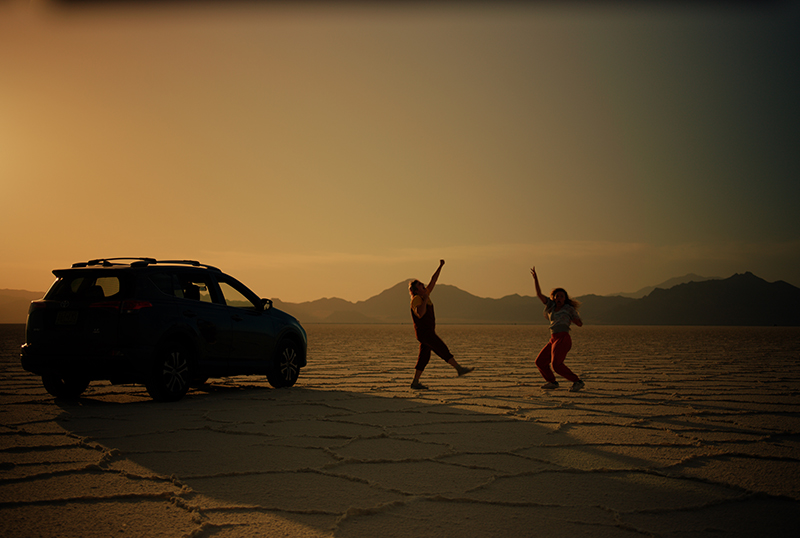
CS: So given that there was such a need for speed, so to speak, in making this film, were you to granted the ability to ever improv from time to time?
WC: We ended up doing a lot of our improvising in the writing process. I think just knowing our voices and knowing how we kind of bounced off of each other, while we were writing the script, we would have so much fun coming up with different conversations, while still having the time to say “Ok, now which ones do we actually want to keep and let’s hone it in and let’s refine it and let’s sharpen it.” Because when we actually got on set, it was so valuable to have like 15 pages memorized that we could then just say, “We got to get this film done, let’s get 20 pages done a day in this car.” Then we know we have at least half of our movie done in three days and that was just a godsend to be able to have that memorization. I think there were some points when we specifically wanted to play around, so we gave ourselves a little extra time, namely in like the car games that we played with each other, just knowing that we wanted real reactions, we wanted to have the energy to spike in a very genuine way. The whale noises when we first hear them is what we’re actually hearing on set, we had other takes when we were just reacting to nothing or in earbuds, but having it play through the speakers and both of us interacting with each other, it was such a genuine reaction. We had to ask sound, “Can you make it work? I know that like hearing the sounds while we’re talking over them is a nightmare for you, but it’s honestly bringing out the best performance and we were able to make that one work.” There are definitely a few moments that we were like, I’m so glad we had a few extra minutes on set to just like make this thing.
ME: But there were also several moments where we did some kind of improv, but we only had time to do one take. So both of the times toward the end of the movie were Whitney’s like improvising songs, that’s just like a one-take thing, she’s just that much of a genius. I love the way that those turned out.
CS: What was it like for both of you, like getting the news that you had gotten into SXSW for this?
ME: I don’t know if I’ve ever had a crazier feeling my whole life, we did not expect it at all. I think we knew what we had done, we made a movie in a very short period of time about a very specific thing and we had gotten a couple of rejection letters already from much smaller festivals. So we were like, “Okay, maybe we’ll put this online for free or something, or we’ll figure out some way that we can,” because we had an amazing production company sign on with us about halfway through filming. They’re called Sorø and they just saved our butts and made it possible for us to get all the way through production, we never would have been able to do everything without them and finish it. So we would love to get them their money back somehow [laughs], but we were just like, “Maybe the festival thing isn’t gonna work out,” and then South by, our dream festival for this film, accepted us. It was just like, I don’t even know how to describe it, like the most validating feeling that is even just possible in the range of human emotions.
WC: It was honestly such a great feeling and then it just kept coming because it wasn’t just that South by was accepting us. In the next few days, we had realized they were putting us in a lineup of highlighted films just to give a teaser of what was in the festival. It was like they understood the intention we had while making the film, which was just we’ve all been through it this year, we’ve all had a terrible time, we’re trying to make our love letter to everyone who’s who’s had a 2020 and just say “Hey, let’s all experience a little bit of light-heartedness together, because I know you were in isolation for so long that maybe it feels like it’s just you, but it was all of us. So let’s laugh together.” I feel like South by got that and has been kind of pushing that messaging of let’s get it to as many people as possible and let’s all feel connected, which then just transcended this film. I’ve started putting more emphasis on this film now that South is putting any emphasis on it, “Like oh yeah, no, it’s so meaningful and it’s such like a great message,” because now I I feel a little more validated that other people like it. [laughs]
ME: There’s just something you don’t get to pick as an artist, as a comedian, you don’t get to pick when something really connects with people. You can try your best to make something that you’re like, “Do you know that feeling when you have a dream where you’re naked?” Maybe people are like, “Yeah, I get that, I feel closer to you because of that,” but maybe they’ve never had that dream before and maybe it doesn’t get to the right people and it just ends up going nowhere. I feel like that’s okay if you’re in love with the process of making your art, but there’s just nothing like it actually connecting. On top of that, connecting the way you wanted it to, which is like, we want you to have fun, we want you to feel seen and we want you to feel like you just hung out with some friends who really get what you’ve been going through because they’ve been going through it too.
RELATED: CS Interview: Stevens & Crampton Talk Gothic Chiller Jakob’s Wife [SXSW]
Co-written by Everton and Call and helmed by Everton and Stephen Meek, the film centers on two directionless sisters who elect to brave a cross-country road trip to rescue their grandmother after leaning of a COVID outbreak at her nursing home.
Alongside Everton and Call, the cast for the film includes Anne Sward Hansen as Nana, Julia Jolley as third sister Erin, Baylee Thornock, Jessica Drolet, Tyler Andrew Jones as overwhelmed Nurse Ackerman, Dora McDonald, Jon Baty, Noah Kershisnik, Jetta Juriansz, Ranleigh Johnson and Marvin Payne.
![CS Interview: Writers/Stars Mallory Everton & Whitney Call on Recovery [SXSW]](https://www.comingsoon.net/wp-content/uploads/sites/3/2021/03/Vertigo.jpg?w=800)
